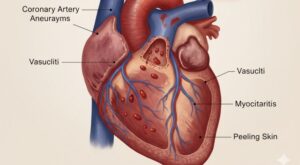Even One Alcoholic Drink Affects Brain Mitochondria: What Science Reveals

For years, the notion that “one drink won’t hurt” has been widely accepted, even promoted in social circles. However, emerging research challenges this belief, especially when it comes to the brain’s most vital powerhouses—mitochondria. These microscopic organelles fuel every brain cell, and even a single alcoholic drink can disrupt their function. This blog explores the science behind how alcohol affects brain mitochondria, even in small doses, and what it means for your cognitive health.
What Are Mitochondria and Why Are They Crucial for Brain Health?
Mitochondria are often called the “power plants” of cells. They generate ATP (adenosine triphosphate), the energy currency that powers nearly every biological process—including thinking, memory, and emotion. The brain, though only about 2% of your body weight, uses over 20% of your total energy, and this energy is generated largely by mitochondrial activity.
When mitochondria malfunction, it doesn’t just lead to fatigue—it may cause serious neurological problems, ranging from brain fog and memory issues to conditions like Alzheimer’s, Parkinson’s, and other neurodegenerative diseases.
Alcohol’s Impact on Brain Mitochondria: Even One Drink Matters
⚠️ Key Study Insight:
A 2023 study published in PLOS Biology found that even low levels of alcohol can interfere with mitochondrial function in the brain, particularly in neurons responsible for memory and learning.[1] Researchers observed that:
- Alcohol disrupts mitochondrial dynamics (fusion and fission cycles that keep mitochondria healthy).
- It increases oxidative stress, leading to mitochondrial DNA damage.
- Mitochondria in the hippocampus—the brain’s memory center—were particularly vulnerable.
What Happens Inside the Brain After One Drink?
Within 30 minutes of consuming a drink:
- Alcohol crosses the blood-brain barrier.
- It triggers inflammation and increases reactive oxygen species (ROS).
- ROS begins to damage the mitochondrial membranes.
- Damaged mitochondria can no longer produce energy efficiently.
- Neuronal communication is impaired, particularly in regions related to judgment, memory, and balance.
Even moderate alcohol exposure leads to mitochondrial swelling, structural deformities, and lower energy output in neurons.
Why Mitochondrial Damage Matters: Long-Term Risks
Repeated damage—even if intermittent—can result in:
- Cognitive decline and memory issues
- Slower reaction time and poor coordination
- Increased vulnerability to neurodegenerative diseases
- Depression and anxiety due to imbalanced neurotransmitter production
- Accelerated brain aging
Does the Type of Alcohol Matter?
No. Whether it’s beer, wine, or whiskey, ethanol is the active component that causes mitochondrial disruption. While some argue that wine has antioxidants like resveratrol, the neurotoxic effects of ethanol outweigh any potential benefit when it comes to mitochondrial health.
Is the Effect Reversible?
Thankfully, short-term mitochondrial impairment can be reversed if exposure stops. The brain has a degree of neuroplasticity, and mitochondria can regenerate under favorable conditions. However, repeated alcohol exposure can cause irreversible mitochondrial DNA mutations, leading to lasting damage.
How to Protect Your Brain Mitochondria
If you consume alcohol:
- Limit intake: The fewer drinks, the better. Consider “alcohol-free weeks.”
- Support mitochondrial health with:
- CoQ10 supplements
- Magnesium and B vitamins
- Antioxidants like vitamin C, E, and alpha-lipoic acid
- Regular aerobic exercise
- Hydration: Flush out toxins effectively.
- Sleep: Essential for mitochondrial repair and cellular detox.
The myth that one drink is harmless is being increasingly challenged by neuroscience. Even a single alcoholic drink can alter how your brain’s mitochondria function, leading to subtle yet significant impairments in cognitive performance and long-term brain health.
Being informed empowers you to make better decisions—not out of fear, but out of understanding.




